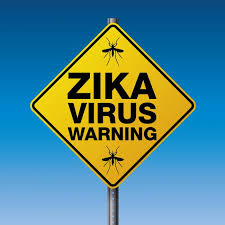When the Zika Virus packs its bag and begins travelling, India is among the most likely places the dreaded virus will visit, say researchers. The most vulnerable areas are China, the Philippines, Indonesia, Nigeria, Vietnam, Pakistan and Bangladesh, says the research.
Scientists trying to predict the future path of Zika say that 2.6 billion people living in parts of Asia and Africa could be at risk of infection, based on a new analysis of travel, climate and mosquito patterns in those regions.
Experts caution that the study could overestimate the number of people at risk because they don’t know whether Zika had already landed in some of these countries in the past and allowed people to develop immunity. More than two-thirds of people infected with Zika never get sick, and symptoms are mild for those who do, so surveillance systems may have missed cases.
Although Zika was first identified in 1947, the virus wasn’t considered a major health threat until a major outbreak in Brazil last year revealed that Zika can lead to severe birth defects when pregnant women are infected.
Did you know that Zika is spread by mosquitoes, and, uh, sex?
In February, the World Health Organization declared the spread of Zika a global emergency, and epidemics have been sparked in at least 70 countries. In the last few weeks, it has sickened more than 100 people in Singapore and started spreading in Florida. Zika is mostly spread by a specific species of tropical mosquito, but it can also be spread by sex and through blood transfusions.

To figure out where Zika might gain a future foothold, researchers examined patterns of people traveling from infected regions in the Americas to Africa and Asia and combined that with an assessment of local conditions, including mosquito populations. They used the spread of a related virus, dengue, as a model for Zika since the same mosquito species transmits both diseases. Dengue is not spread by sex, like Zika, but mosquitoes are responsible for the vast majority of Zika cases globally.
The study was published online Thursday in the journal, Lancet.
But there’s hope, however faint. Some experts pointed out that the expected impact of Zika will depend largely on whether people have any previous exposure to the virus — and that is unknown.
“No one has ever looked, so we don’t know if there is any pre-existing immunity to the virus,” said Dr. Abraham Goorhuis of the University of Amsterdam, an author of a commentary that accompanies the Lancet study. The virus in the Americas is an Asian strain that was responsible for a large outbreak in French Polynesia and other Pacific Islands in 2013 and 2014.


